Year 1
The English curriculum is built around the three interrelated strands of language, literature and literacy. Teaching and learning programs should balance and integrate all three strands. Together, the strands focus on developing students' knowledge, understanding and skills in listening, reading, viewing, speaking, writing and creating. Learning in English builds on concepts, skills and processes developed in earlier years, and teachers will revisit and strengthen these as needed.
In Year 1, students communicate with peers, teachers, known adults and students from other classes.
Students engage with a variety of texts for enjoyment. They listen to, read, view and interpret spoken, written and multimodal texts designed to entertain and inform. These encompass traditional oral texts including Aboriginal stories, picture books, various types of stories, rhyming verse, poetry, non-fiction, film, dramatic performances and texts used by students as models for constructing their own texts.
The range of literary texts for Foundation to Year 10 comprises Australian literature, including the oral narrative traditions of Aboriginal and Torres Strait Islander Peoples, as well as the contemporary literature of these two cultural groups, and classic and contemporary world literature, including texts from and about Asia. Literary texts that support and extend Year 1 students as independent readers involve straightforward sequences of events and everyday happenings with recognisably realistic or imaginary characters. Informative texts present a small amount of new content about familiar topics of interest and topics being studied in other areas of the curriculum. These include decodable and predictable texts which present a small range of language features, including simple and compound sentences, some unfamiliar vocabulary, a small number of high-frequency words and words that need to be decoded phonically, as well as illustrations and diagrams that support the printed text.
Students create a variety of imaginative, informative and persuasive texts including recounts, procedures, performances, literary retellings and poetry.
(source: www.australiancurriculum.edu.au)
Achievement Standard
Receptive modes (listening, reading and viewing)
By the end of Year 1, students understand the different purposes of texts. They make connections to personal experience when explaining characters and main events in short texts. They identify that texts serve different purposes and that this affects how they are organised. They describe characters, settings and events in different types of literature.
Students read aloud, with developing fluency. They read short texts with some unfamiliar vocabulary, simple and compound sentences and supportive images. When reading, they use knowledge of the relationship between sounds and letters, high-frequency words, sentence boundary punctuation and directionality to make meaning. They recall key ideas and recognise literal and implied meaning in texts. They listen to others when taking part in conversations, using appropriate language features and interaction skills.
Productive modes (speaking, writing and creating)
Students understand how characters in texts are developed and give reasons for personal preferences. They create texts that show understanding of the connection between writing, speech and images.
They create short texts for a small range of purposes. They interact in pair, group and class discussions, taking turns when responding. They make short presentations on familiar topics. When writing, students provide details about ideas or events, and details about the participants in those events. They accurately spell high-frequency words and words with regular spelling patterns. They use capital letters and full stops and form all upper- and lower-case letters correctly.
(source: www.australiancurriculum.edu.au)
- Free Plan
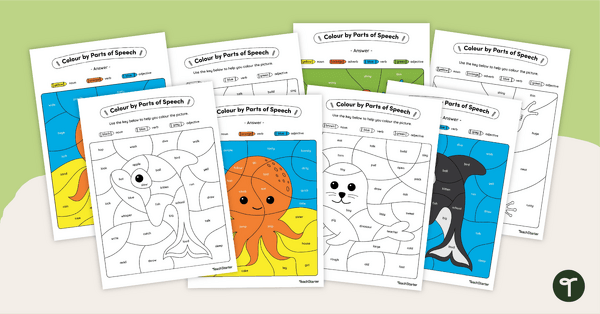
Colour by Parts of Speech - Nouns, Verbs, Adjectives, Adverbs
Consolidate your parts of speech lesson by colouring nouns, verbs, adjectives and adverbs in these colour by code worksheets.
- Plus Plan
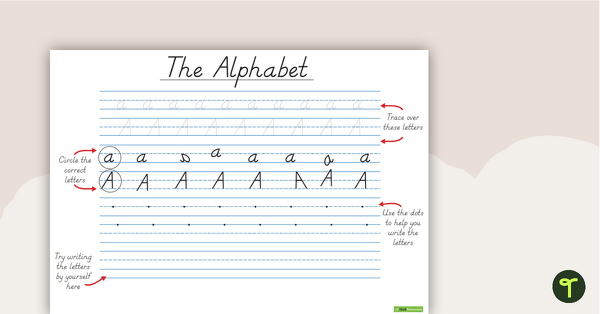
Alphabet Handwriting Sheets - Including Non-Examples
Handwriting sheets with opportunities for students to trace, identify and write the letters of the alphabet.
- Plus Plan
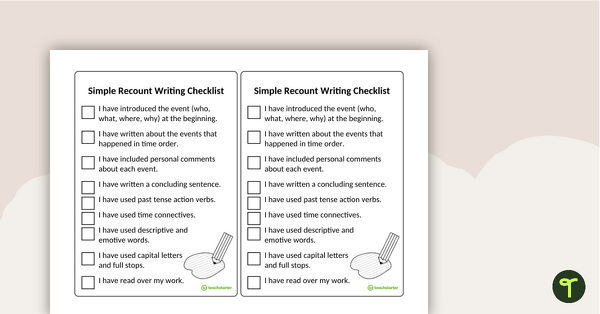
Recount Writing Checklist Pack
Use this recount writing checklist pack when teaching your students how to edit their writing.
- Plus Plan
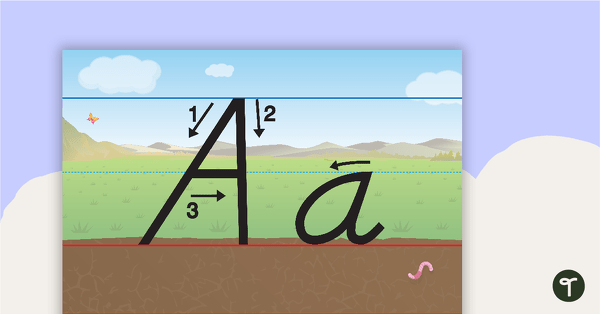
Handwriting Posters - Dirt, Grass and Sky Background With Arrows
Handwriting posters using a dirt, grass and sky background with arrows.
- Plus Plan
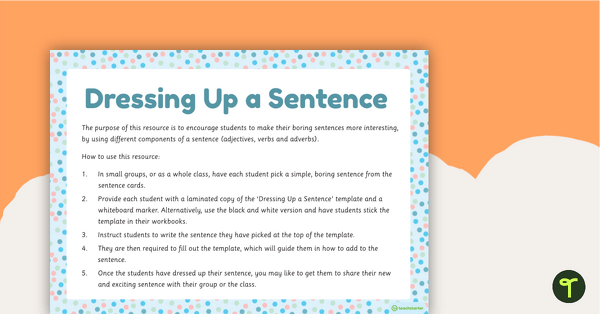
Dressing Up A Sentence Activity
An activity to help encourage students to add more descriptive language into their sentence writing.
- Plus Plan
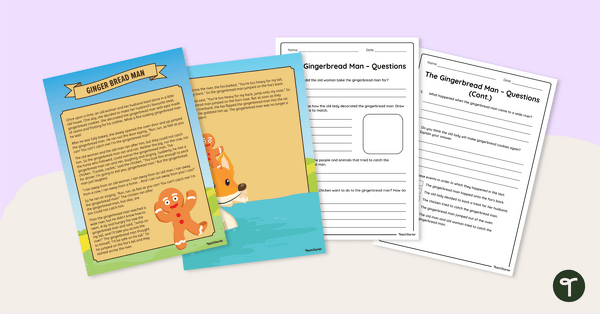
The Gingerbread Man - Comprehension Worksheet
Develop your students' reading comprehension skills with a well-known fairy tale.
- Plus Plan
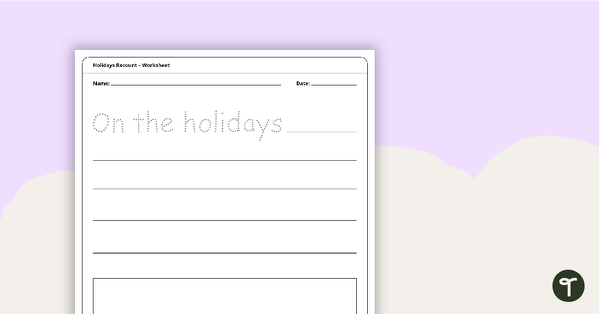
Holiday Recount Worksheet
A worksheet for younger students to use when writing a holiday recount.
- Free Plan
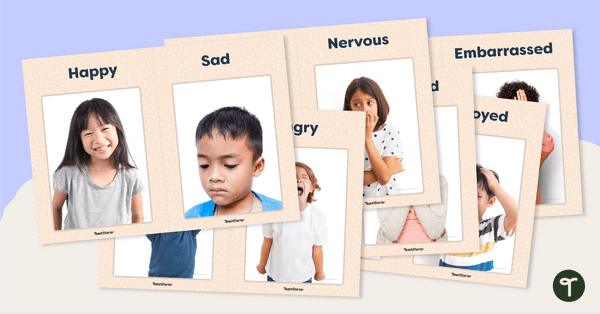
Recognising Feelings Flashcards
Improve your students' emotional literacy with this set of feelings flashcards.
- Plus Plan
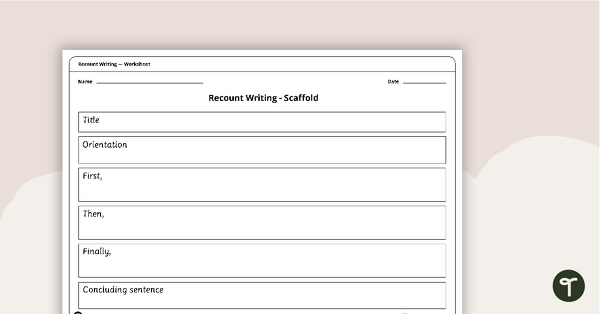
Simple Recounts - Writing Scaffold
A simple scaffolding worksheet to use when writing a recount.
- Plus Plan
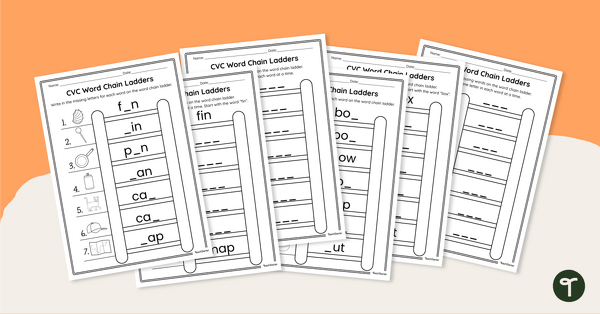
CVC Word Chain Ladders - Worksheets
Build word chains with CVC words using this set of printable phonics worksheets.
- Plus Plan
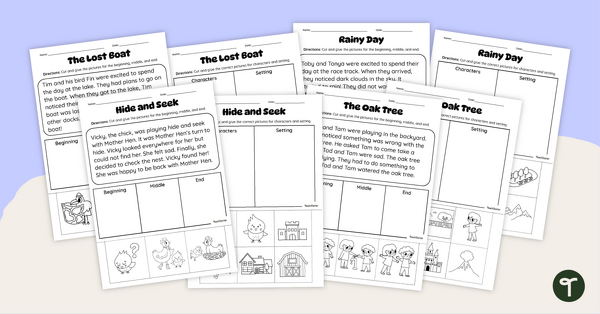
Beginning, Middle End Worksheets
Explore the main structure and story elements in a short story with these beginning, middle and end worksheets.
- Plus Plan
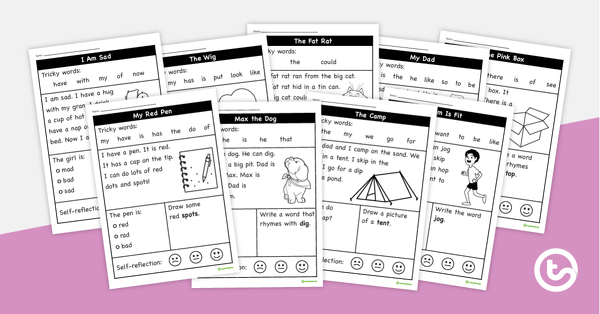
Decodable Text Worksheets – Single Graphemes (Set 2)
A set of 10 decodable text worksheets for early readers.
- Plus Plan
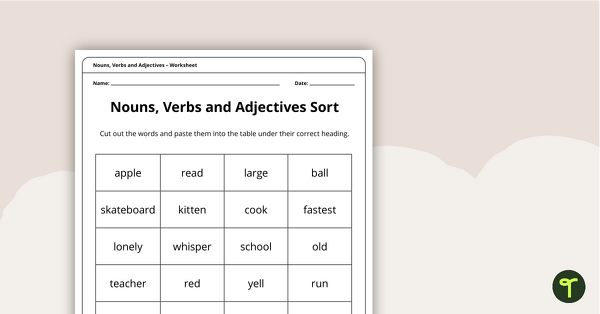
Nouns, Verbs and Adjectives – Sorting Task
Help students learn the difference between nouns, verbs, and adjectives with this cut-and-paste sorting worksheet.
- Plus Plan
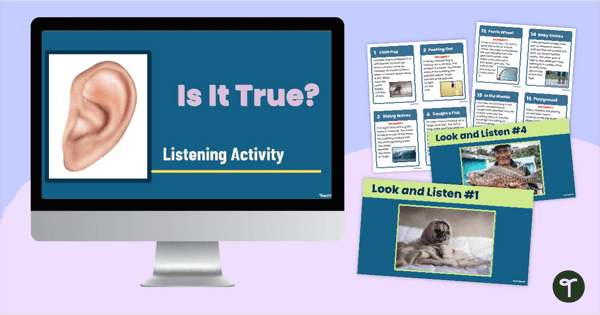
Is It True? Active Listening Activity
Improve listening skills in the classroom with an engaging 'Is It True?' Active Listening Activity.
- Plus Plan
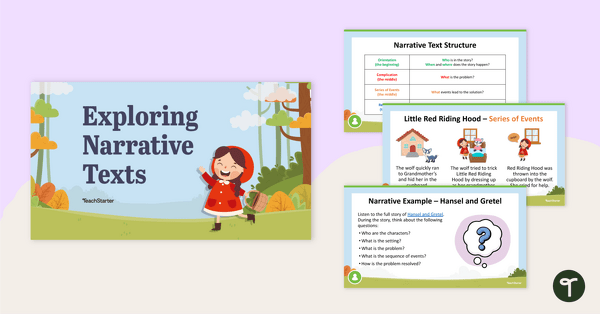
Exploring Narrative Texts PowerPoint
Teach your students about the key elements of narrative texts with this comprehensive teaching presentation.
- Plus Plan
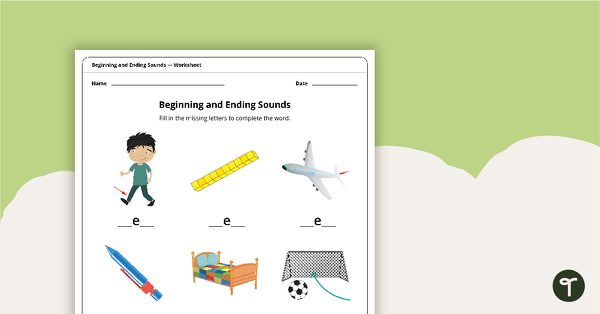
CVC Beginning and Ending Letters Worksheet Pack
Practise identifying missing beginning and ending sounds and letters in this set of 10 CVC worksheets.
- Plus Plan
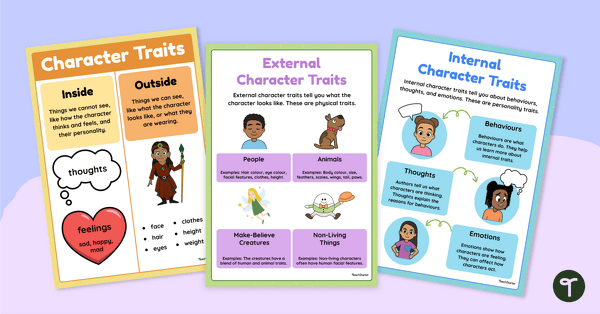
Character Traits Posters
Remind your students about the difference between external and internal character traits with this set of three classroom posters.
- Plus Plan
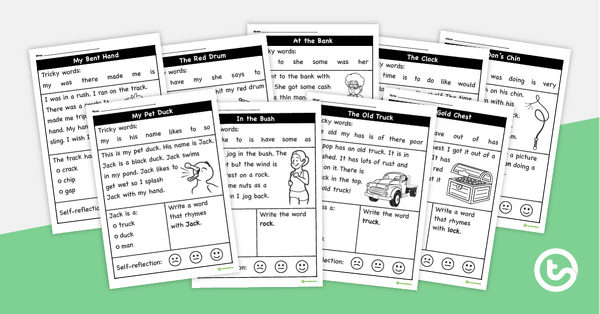
Decodable Text Worksheets – Common Consonant Digraphs (Set 2)
A set of 10 decodable text worksheets for early readers.
- Free Plan
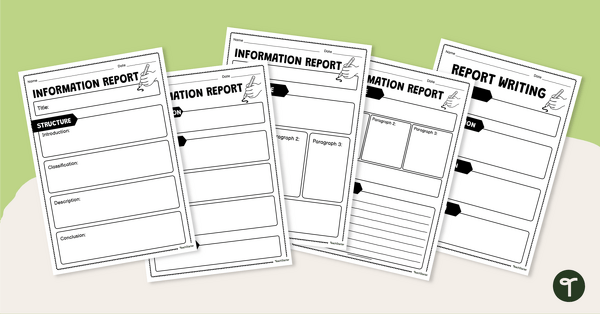
Information Report Graphic Organisers
Get your students to plan and write information reports with this set of 6 differentiated graphic organisers.
- Free Plan
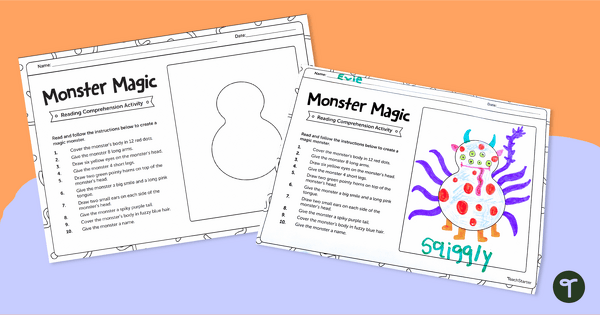
Monster Magic - Reading Comprehension Activity
Read and comprehend a set of instructions to create a magical monster!
- Plus Plan
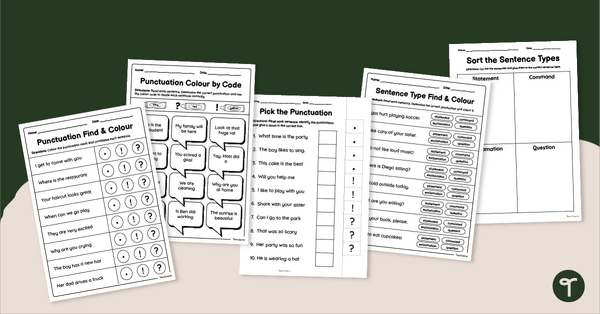
Punctuation & Sentence Types Worksheets (1-2)
Identify the four types of sentences and their punctuation marks with a printable set of Punctuation & Sentence Type Worksheets for Grade 1 and Grade 2.
- Plus Plan
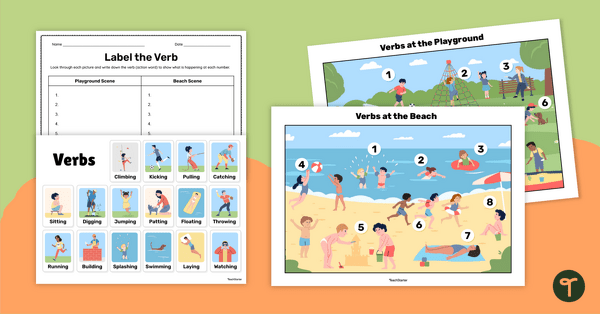
Verbs in Pictures Activity
Explore verbs in action using these scenes at the playground and beach.
- Plus Plan
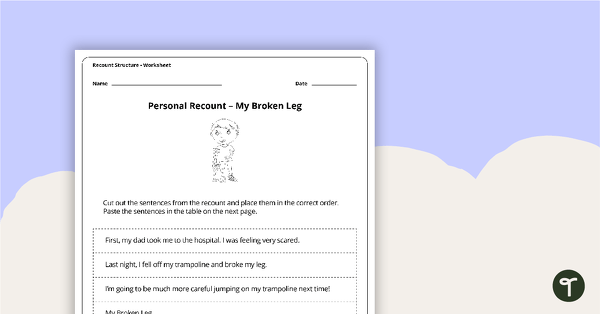
Personal Recount Sequencing Activity - My Broken Leg
A worksheet to use in the classroom when learning the sequence of a personal recount.
- Plus Plan
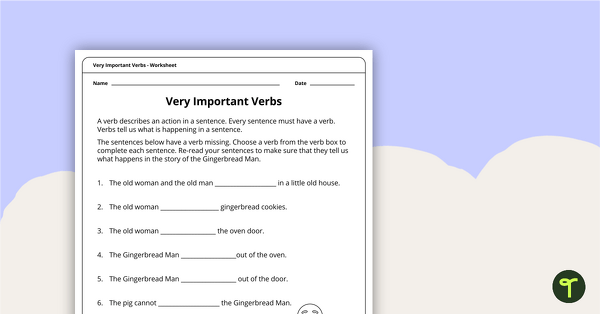
Very Important Verbs Worksheet
Explore verbs within the context of the well-known story of The Gingerbread Man.
- Plus Plan
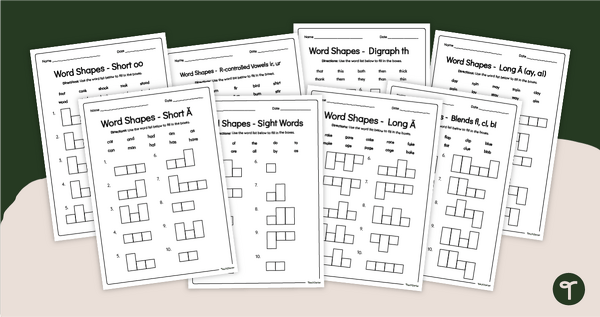
Elkonin Boxes - Word Shapes Worksheets - Year 1
Build early phonics skills with our printable Phonics-Based Elkonin Boxes Word Shapes Worksheets.
- Plus Plan
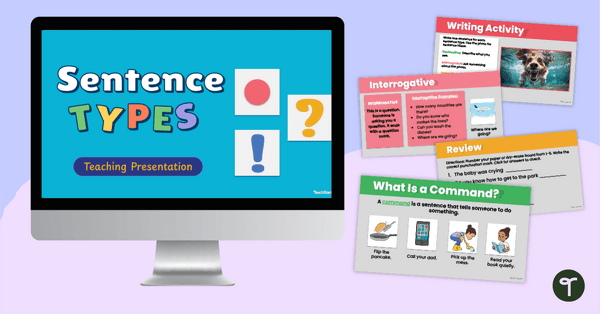
Statement, Question, Command & Exclamation Sentences PowerPoint
Introduce statement, command, question, and exclamation sentences with an interactive teaching slide deck.
- Plus Plan
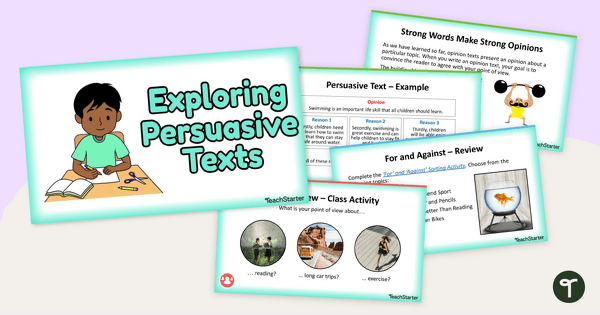
Exploring Persuasive Texts PowerPoint - Year 1 and Year 2
A 35 slide editable PowerPoint template to use when teaching your students about the structure and language features of persuasive texts.
- Plus Plan
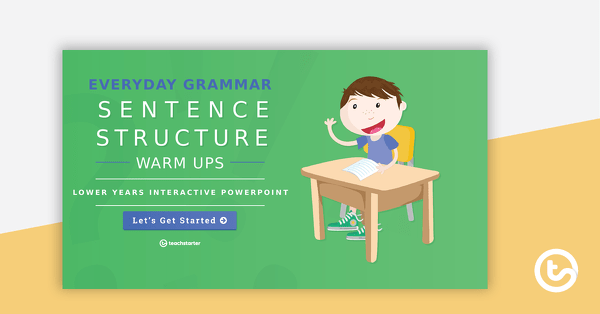
Everyday Grammar Sentence Structure Warm Ups - Lower Years Interactive PowerPoint
An engaging 44 slide interactive PowerPoint to use in the lower years classroom when learning about grammar and sentence structure.
- Plus Plan
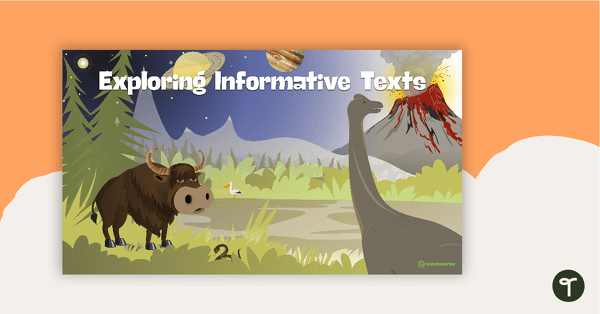
Exploring Information Reports Teaching Slides
Teach your students how to write an information report using this detailed slideshow targeted at lower primary school students.
- Plus Plan
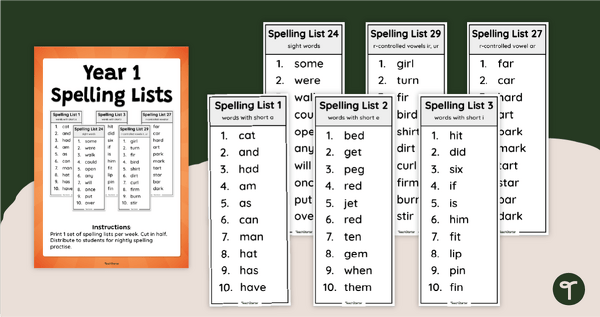
Year 1 Spelling Words - Weekly Lists
Create successful spellers with printable weekly spelling word lists for Year 1.
- Plus Plan
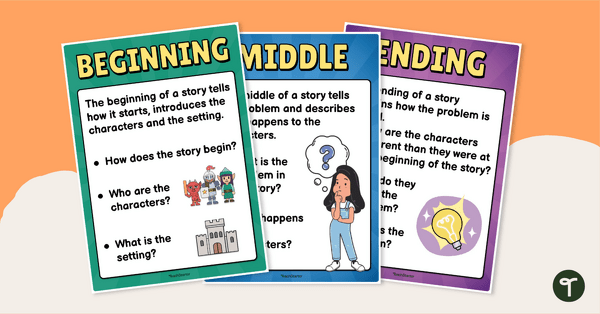
Beginning, Middle and End of Story Poster Set
Remind students of the elements that make up the beginning, middle and end of a story with this set of three posters.
- Plus Plan
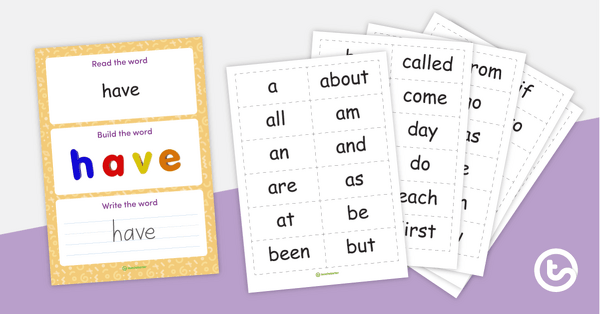
First 100 Fry Sight Words – Practice Mat
A hands-on resource to enable your students to practise reading and writing a range of high-frequency words.